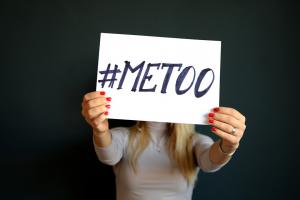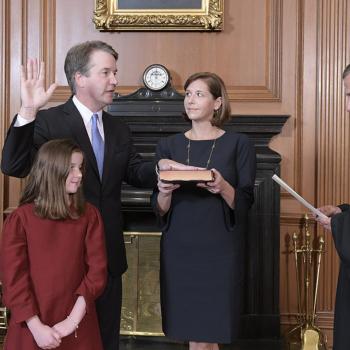It’s as if a flood gate has opened. One sexual assault accusation after another recently. Weinstein, Spacey, and Moore have recently been added to the already long list…and no doubt there are many others that didn’t quite get the same attention. The #MeToo social media campaign helped shed light on the sheer numbers of women who have experienced some form of sexual trauma – ranging from harassment to rape. Make no mistake: listing this as a “range” does not minimize or excuse any of these experiences. And it sure doesn’t excuse the behavior. Clearly, we have a problem. We’ve always had a problem. Men frequently use and abuse women. And, often, we only hear about the “celebrities” – the Hollywood stars and political candidates. But the reality is that sexual trauma happens over and over every. single. day.
Think of 6 women you know. Statistically, one of those women has been raped. Raising awareness and making it known that rape or any kind of assault or harassment is not acceptable are important steps in working towards ending this atrocity. What’s really sad – heartbreakingly sad – is that sexual trauma is 100% preventable. Just stop harassing and assaulting other people. It really is that simple. Yet, it keeps happening. And the question becomes, what are we – including the church – doing about it? Are we sweeping this under the rug or are we willing to stand up and speak out to help prevent sexual trauma and to help those who have been victims? I say, there is a lot more we can (and should) be doing.
One important point that there seems to be some debate over is this: Those who come forward and report being sexually traumatized should be believed. Now, to be clear, that does not mean we should try and convict the accused (if the person is named) in the court of public opinion. It’s difficult to balance “presumed innocent until proven guilty” with “believe the victim,” but we have to strive for both. This doesn’t mean we can’t take in all of the known evidence and develop an informed opinion. But, it also doesn’t mean we have to pull out the pitchforks and light the tiki torches. Yet, we can’t ignore the information we have – we’re accountable for that. For example, just because an accused man hasn’t been found guilty of a crime doesn’t mean we should allow him to volunteer with children or youth. It doesn’t mean we make excuses (“That was a long time ago – if it happened, I’m sure he’s changed”) or question the victim (“Why is she just now disclosing this? Seems suspicious.”)
Yes, sometimes, someone makes a false accusation. Statistically speaking, those occurrences are rare. To address an elephant in the room: Could someone be paid off to come out with an allegation of assault in order to take down a political foe? Of course, that’s possible, and it may very well happen. Anyone who is found to have made a false accusation should be prosecuted to the fullest extent of the law. Those who make false claims gravely harm real victims, and this needs to be discouraged at all costs. Likewise, anyone who is found to have victimized someone should be prosecuted to the fullest extent of the law. Sexually traumatizing someone is never acceptable, never excusable, and never justified. While forgiveness can come through Jesus Christ, that does not mean there should be no jail time and it doesn’t mean perpetrators should be trusted in positions of power.
But, really, this blog isn’t about the “big names” that have been accused, and whether or not they are guilty. It’s not even about their (reported) victims. It’s about:
Julie in Idado.
Ashley in Florida.
Mary in New Mexico.
Insert your name or your sister’s name or your mother’s name or your friend’s name here.
It’s about all of us. Because we are all impacted by sexual trauma. Whether we know it – and whether we admit it – or not. Are we really willing to so easily cast aside women who make claims of being victimized because on a rare occasion someone makes a false accusation? It’s not logical. It’s not wise. And it’s not helpful. Women who come forward are almost always telling the truth. They are crying out to be heard and helped. We should do both. The bottom line is this: When a woman comes to you with a story of sexual trauma, believe her. Listen to her. Cry with her. Support her. Guide her to appropriate treatment. Our role is to be compassionate and empathetic, not condescending and questioning. Which side do you want to be found on? I choose the former, knowing that it could so easily be #MeToo.













